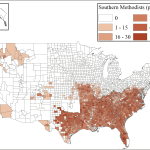
If you do not like hard questions, you cannot be fully human, let alone a Christian. Satan twisted the world by denying the obvious and questioning foolishly. God hides truth and his leaders search them out. We could be told everything, but that is for children or animals. We are not trained by God, but educated.
Don’t go to a school, especially a Christian college, that thinks memorizing rote answers is education. Instead, find a place that seeks out hard problems. I have a former student deeply admirable in never taking easy answers and so I asked him to ask me a good question. He did! The only change I have made is to obscure the name of a Christian apologist in his question, because that seems the decent thing to do!
Here is Adeimantus*:
The historical evidence for the Resurrection is contained in a 2000 year old book. This book contains what is claimed to be the witness testimony of apostles and/or people close to Jesus, written within the first generation after his death. Not bad, but there’s plenty of room for doubt. Even if those claims are authentic, we still don’t know whether what these witnesses are saying is true. After all, they recount miracles. True, your worldview is open to them, so that makes them possible on a subjective level, but whether or not they actually occurred is another matter.
This is an excellent point. The arguments for materialism are bad (see the existence of mathematical objects) and the arguments for “miracles” are sound, but that does not mean this particular miracle, the most important miracle of all, the Resurrection, happened. Wishing it to have happened does not mean it happened, though it gives a motive to look for evidence. Adeimantus is right: there is plenty of room to doubt.
Now, contrast the evidence for the Resurrection with the evidence for extraterrestrial contact with a NASA astronaut, such as Gordon Cooper, who claims to have had 1st hand contact with ETs. Gordon is an air force pilot, and astronaut, trained in identifying aerial phenomena. He would have undergone thorough psychological and physical testing before being allowed into space. He also has a legacy to worry about – why tarnish your reputation and that of your family’s by talking about little green men. He’s also still alive and we can subject him to cross-examination.
This is good evidence and we should take Gordon Cooper seriously. He has seen something or believes he saw something. We should use the tools of skepticism (as always), but I think we should begin with a disposition to belief. We believe Gordon Cooper until we have reason to doubt him. Why not? This does not bring our investigation to a stop, the existence of ETs would be wonderful indeed and so should generate enthusiastic investigation. It has. Are there ETs? Maybe, though probably not.
Unlike the witness of the Apostles to the risen Lord, the experience of Gordon Cooper has not received collaboration from equivalently serious witnesses. Christ ascended, but then a serious intellect like Saint Paul experienced the risen Lord. The next generation of witnesses was, if anything, more intellectually serious than the first. What of ET studies? ET studies has degenerated. Cooper is as good as it gets, while the witness to a living Christ gives us Thomas Aquinas who experienced the risen Lord just as Saint Paul did centuries before he lived. Imagine!
Thomas Aquinas may have been as serious an intellect as any who has ever lived and a man of integrity in a noble court.
Adeimantus has asked this question before and not been taken seriously enough:
Now, I posed this very scenario to Thales* years ago, in a car when we were on our way to a conference. I said, “Do we not have at least if not more evidential warrant to believe Cooper’s tale given all the factors listed above, as we do to believe claims made in an old book?” He said, “Absolutely not, because aliens could never get here given the vast differences.” Apparently, supernatural phenomena like miracles are more probable than the existence of science sufficiently advanced beyond our own to overcome the distance problem. The point is this: for all Thales’ focus on evidence and ‘minimal facts’, this was surely a question of presuppositions and worldview. The evidence itself played little role in Thales’ evaluating the reliability of the witnesses to each event. That is to say, this reveals two crucial weaknesses in the classical apologetics methodology 1. It attempts to persuade people that Christianity is true, over and against competing worldview claims – allowing autonomous man to be the judge of God); and 2. Thales’ own methodology cannot escape the reality of a lack of neutrality in assessing competing evidence claims.
I respond that if the only comparison we had was one witness (John) and Cooper, then we certainly have a better witness in Cooper. Thales was not careful, because he assumes what he cannot know: distance cannot be defeated. In fact, given Thales’s cosmology, Cooper could have experienced devils, angels, or advanced life that God has made that (unfallen!) operate under a prime directive for our broken planet. CS Lewis speculates about this very idea in his Space Trilogy.
Thales does not know enough to state that ET life could not reach earth. He is hasty. Why?
Miracles, since they rely on the actions of a person, God, that we know exists are more probable (given philosophical arguments) than ET action. We do not know ET life exists, though it is very possible. Thales was still too confident and might have been a function of presuppositions and world view, but is more likely suffering a failure of imagination. Sadly, the rigors of certain kinds of education encourage a kind of intellectual carefulness that can lead to conventional thinking. One might imagine that Thales, a theist, is a risk taker, but he is taken seriously, because he takes as few risks (compared to convention) as possible. This is prudent, but means at the margins, his training can restrain him.
Thales should realize that just as there is more in heaven and earth than the materialist imagines, there may be more in heaven than is listed in the Bible!
The weakness is less in classical apologetics, than in apologists. We should not merely defend the Faith, but be open to alternative ideas, as open as we hope others are to our own thoughts. You are right Adeimantus that Thales is not neutral, but that is not as serious as you think. Thales exists in a community, one that includes you, and so he is checked where his bias and (world class) education limits his thought.
Or so it seems to me. You?
————————–
*Not his real name, but his curiosity and courage is like the Greek in Republic.
**Seminal Christian thinker and apologist, but not named Thales.
















